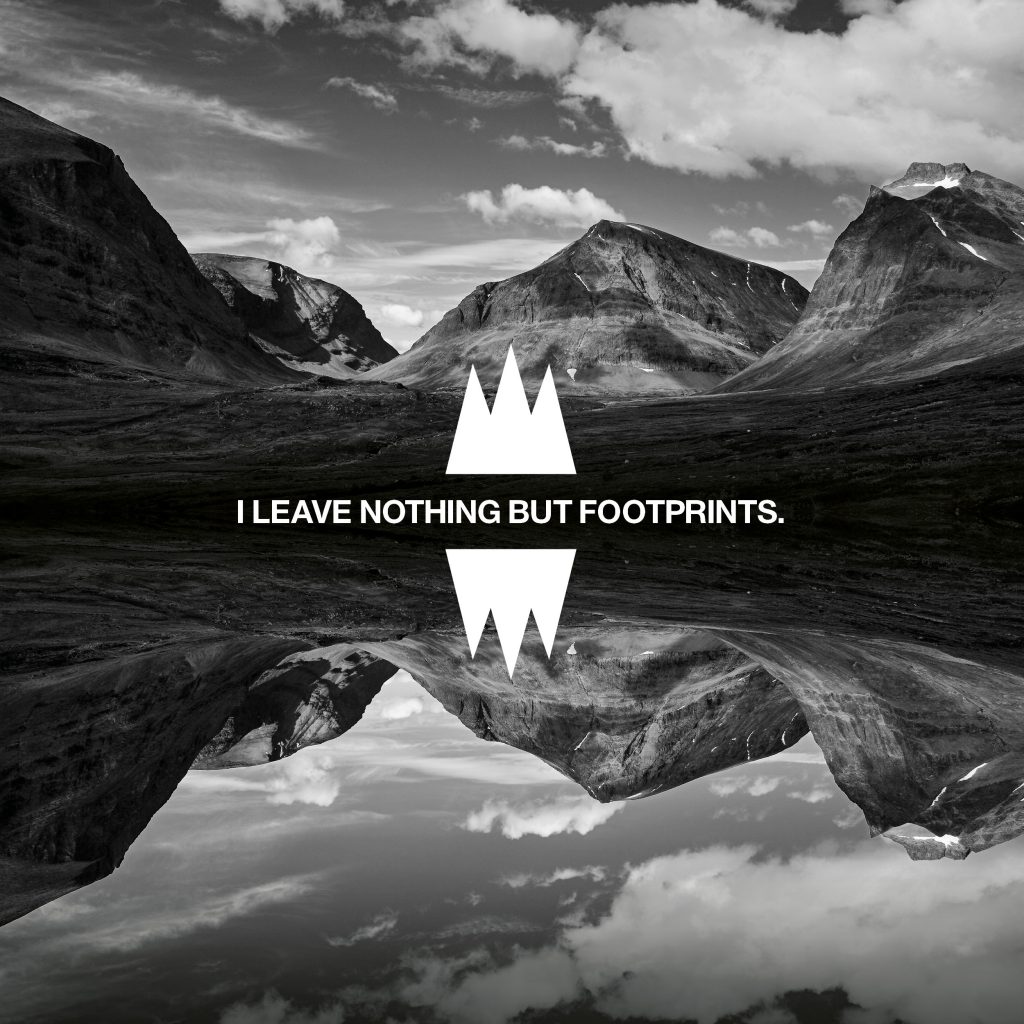
We’re all in this together
From Everest to the ocean floor, litter is a truly global environmental problem. And it’s a very tangible, very visible problem. Cigarette butts swell in mounds in our cities’ gutters; beer cans roll forward and backwards in a light summer breeze in our farmers’ fields; fast-food containers look like great homes for mice, voles and birds until they turn into Fort-Knox-like prisons; and plastic – from water bottles to teeny tiny pieces of micro-plastic – fills our oceans and steals vital living space from native species.
Because litter is so visible, we are aware of the problem. And because it’s so tangible, we are able to do something about it. But the way we consume is hampering best efforts to reduce its prevalence. From the rise of fast and takeaway food to bottled water and plastic bags, not to mention our switch to supermarkets from greengrocers, fishmongers and butchers, our love for single-use packaging has swelled to epic proportions. The UK, for example, uses 2.5 billion disposable coffee cups each year while US consumers throw away 2.5 million plastic bottles every hour. And all this has to end up somewhere. And if a smelly, steaming landfill isn’t your water bottle’s final destination; then nature is forced to pick up the slack.
In big cities, people see that other people clean up after them. Litter there is basically someone else’s problem. And we now see that people from the city take this behaviour to nature. People aren’t taking responsibility for their own actions. Instead, they expect someone else to clean up after them.
Anna Grundén works for Håll Sverige Rent (Keep Sweden Tidy). Its mandate is to impact people’s behaviour and attitude towards litter, aiming to increase awareness of litter’s environmental repercussions, thereby reducing the volume of litter. But although Håll Sverige Rent has been making good headway since it’s creation in the 1960s, it still has a long way to go. Despite Sweden’s reputation for being clean and beautiful, with wild nature open to all, Anna has seen litter in even the remotest areas of the country, with plastic being the most common form.
In the US for instance, plastic litter increased by 165% between 1969 and 2009. We’re producing around 20 times more plastic now than we did in the 60s. And most of it is single use plastic, which usually ends up in the oceans.
Litter can travel really far. 80% of litter in the ocean comes from land. A bottle may be thrown on the ground in the city but it can easily end up in a waterway and eventually the ocean.
ANNA GRUNDÉN
“And plastic is a big issue because it doesn’t disappear, it just gets smaller and smaller. When it comes to the ocean it becomes micro-plastic and ends up in our ecosystem and sooner or later it will get back to us. We see that lots of sea birds, mussels and fish have plastic in their stomachs. We don’t really know the consequences because it hasn’t been studied yet. But we do know that micro-plastic can attract other chemicals, making it more poisonous.”
It's such a 'big issue' that the UN is now taking more concerted action. Earlier this month, the UN hosted The Ocean Conference, a "high-level United Nations Conference to Support the Implementation of Sustainable Development Goal 14: Conserve and sustainably use the oceans, seas and marine resources for sustainable development".
And according to the website, "the Conference aims to be the game changer that will reverse the decline in the health of our ocean for people, planet and prosperity."
So this is what governments are doing. But what can we do?
The simplest thing to do is not to drop litter. We’re all responsible for our own actions and we can choose to throw our rubbish in the bin, or not. To take our plastic and paper packaging home with us again after a camping trip, or not. The power for change is in our hands.
We can also have an impact through our purchases. We can avoid single-use packaging wherever possible: take our reusable coffee cup to our favourite café; reuse our water bottles; buy loose fruit and vegetables rather than packaged ones; avoid plastic takeaway boxes and take our own bags to the supermarket.
But it’s not just about individual action. We’re all in this together. So when we see litter – even if it’s not ours – we can make an effort to clean it up.
Håll Sverige Rent works with Sweden’s local municipalities to organise clean up events and to doll out reusable rubbish bags for collecting litter. One recent campaign engaged nearly 800,000 people from all parts of Sweden and together they collected a huge amount of litter from nature and cities alike.
Håll Sverige Rent also lobbies the Swedish government for change. “We work on a policy level and lobby the government to make litter a higher priority. And things are finally starting to happen – which is great. But that’s largely due to the huge media coverage about micro-plastics and a new EU directive that stipulates governments must reduce plastic bags in stores. So something is happening, but at the same time the problem is really, really big.”
Plastic has been demonised recently. According to the UN’s estimates, and if nothing changes in the current status quo, by 2050 there will be more plastic than fish in the ocean. It’s easy to just blame this all on plastic and say we should get rid of it. But if attitudes don’t change, it will just be some other substance than ends up in our oceans.
“Plastic definitely has its uses and in many ways it’s great. It keeps food fresh and it’s really portable. But the act of discarding it in the street or in the forest is the problem. So it’s difficult and complicated,” says Anna. “I don’t think we should ban plastic completely. It’s not the product, but the action that’s wrong. If plastic is reused and recycled then it shouldn’t be as much of a problem. But right now only 45% of the plastic produced in Sweden is recycled and lots of it ends up where it shouldn’t be.”
This summer, Håll Sverige Rent is running a new campaign, a campaign which will hopefully engage even more than the 800,000 Swedes that took part in the last litter-collecting drive.

Please Leave Nothing But Footprints is a Sweden-wide campaign designed to get people cleaning up litter in nature. “We give people the knowledge and tools – in this case, a reusable trash bag – to make it as easy as possible to do something. Unlike climate change, which is so big, litter is a very concrete environmental problem because you can see it and you can take action. You can do something about it. And that’s the main purpose of this campaign, to make people aware that when they’re in nature they should not leave any trace. Litter is everyone’s responsibility.”
Find out more about Håll Sverige Rent’s Please Leave Nothing But Footprints campaign here (in Swedish) The reusable trash bags mentioned above will be available in Naturkompaniet stores in Sweden from 20 June. Help us keep Sweden tidy.


